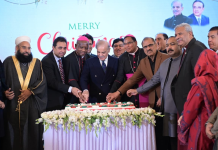Students’ union is need of hour in colleges and universities because it is a significant part of university administration as an imperative instrument for overall political development. It has been emphasized that the university is a form of educational institution uniquely created for the overall development and its students should be uniquely organized in form of union so that universities could perform their developmental roles. Students union remains the highest embodiment of structures that are capable of molding university students into future leaders for the development of the country, irrespective of the formal degrees that the students obtain from university. Any university administration that must help its country to achieve its overall socio political goals needs necessarily allow organization of students in forms of unions as several political actors in international politics today can trace their political socialization to students union.
In Pakistan the situation remained altered where between January and March of 1984, the dictatorial regime of General Zia-Ul-Haq promulgated a series of martial law ordinances (MLOs) which banned student unions in colleges and universities across Pakistan. Zia’s regime depoliticized political socialization process because of the results of the 1983 student union elections in Karachi in which anti-Zia student alliances had swept the polls, set off alarm bells in the regime. However historically students unions have played vital role during 1968 protest movements against the Ayub Khan regime and forced him to resign in March 1969. Zia’s regime being intolerant and inflexible could not afford students unions to become hotbeds of anti-government agitation which resulted to imposition of ban on students union. A plea was taken to justify that the ban is imposed to curb incidents of violence on campuses, mostly during student union elections. The move was deceptively an attempt to curb increasing violence and clashes between students on the Left and Right sides of the ideological divide. Ironically, the continued ban has not only failed to end violence on campuses, but also resulted in stifling the intellectual growth social and political development of students.
Zia’s regime kept the progressive unions under eye and did not allow any free activity in campus. However the first Benazir Bhutto’s regime removed the ban on students union in 1989 and elections were held in all state owned colleges in Punjab. But unfortunately in 1992, during Nawaz Sharif regime, the supreme court of Pakistan imposed a blanket ban on students’ politics in response to the heels of the deadly clashes between PSF and APMSO in Karachi and MSF and IJT in Lahore. The ban was imposed where conventional politics began to rapidly wither away.
Historically, student unions were training grounds that provided responsible citizens to the national mainstream. The indulgence in constructive debate, campaigning for intra-university positions, developing small-scale governance policies, highlighting and resolving issues affecting the student body and ensuing accountability are cited as some of the trainings that made students turn into accountable individuals who could shape the country’s future better. But unfortunately in Pakistan, student politics conjures up images of slit open bloodied heads, gun violence, strikes and somehow disconnect with the academic process.
Nonetheless, there have been discussions about revitalizing the unions, but without much progress. Yousaf Raza Gilani,in his address to parliament after elected as prime minister, vowed to restore student unions. However, his government failed to keep the promise. Another attempt was again made by Pakistan People’s Party in Senate in 2017. On August 27, 2017, the Senate passed a resolution for the restoration of student unions. The senate cited the positive role of the unions for arranging activities for their respective student bodies, as well as protecting the rights of students. Once again, the ban was not lifted as a bill could not be pushed through parliament despite of other attempts and resolutions passed by the Sindh Assembly as “This House resolves and recommends the Government of Sindh to lift the ban on the students unions in the educational institutions of Sindh in the light of the Article 16 “Freedom of Assembly” and Article 17 “Freedom of Association” of the Constitution of the Islamic Republic of Pakistan 1973. The student unions are a major forum for organizing social activities and for addressing a range of academic and welfare issues through collective representation of students. It will also allow students to practice upon their skills of diplomacy, debate, politics, and leadership through the code of conduct in order to avoid any conflict amongst the different student organizations”.
A discussion paper published by Pakistan Institute of Legislative Development and Transparency (PILDAT), tilted Proposed Revival of Student Unions in Pakistan, calls for a wider debate among stakeholders. The paper published in 2008 concludes, “An effort should be made to learn from the examples of other countries. India has gone through and may still be going through almost similar experiences relating to students’ unions and their negative fallout. The safeguards and guidelines adopted by the Indian Government and the Supreme Court may serve as a good starting point for the revival of students’ unions in Pakistan”..
The case of students union is a good example of reciprocal determinism where university students learn politics and political activities from the university system and then return to the larger society to politically socialize to others and participate in its larger framework. If the student union structure does not exist in the university, the cycle of reciprocal determinism is likely to exclude almost all students from organizations and larger political framework. While we must note, however, that students unions sometimes engage in activities that can be antithetical to the reasons of their existence and that can equally hamper smooth running of the university as well as peace and tranquility in a society.In addition, if there are no students unions in universities, young adults will miss the opportunity of political leadership training that they cannot achieve through formal degrees. Without it many graduates will either lack adequate political experience or the strong character needed to lead their people when they get to practical life. This spells doom for a nation and puts its political development in jeopardy.
Recently student of different universities arranged rallies demanding students’ rights and restoration of students’ unions is a good sign with the zeal and vigor of “sarfaroshi ke tammana aab hamaray sar ma ha”. The government must pay serious attention to the genuine demand of our youth our future.
The writer is Research & Development Officer
BISE Abbottabad.











